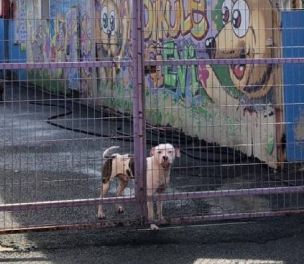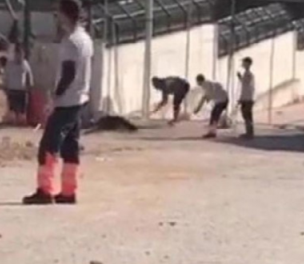Photo: Bianet
Since 2010, the world celebrates 'Stray Animal Day' on April 4.
With 10 million free-roaming animals in Turkey, they are a common sight in both urban and rural areas. İstanbul's stray dogs and cats have even become movie stars with the 2014 "Kedi" and the 2020 "Stray'' documentaries.
However, legal protection for these free-roaming creatures has only been guaranteed in recent years.
2004 legal regulations
2004 was a milestone year for both domestic and stray animals in Turkey. It marked the establishment of penalties for animal cruelty and new regulations for stray animals.
These regulations specified that stray animals can only be taken in for vaccination, treatment, sterilization, and rehabilitation, after which they must be released back into their natural habitat.
Over the years, new laws have been added and previous regulations amended. Furthermore, in 2019 a research commission concerning animals was set up in the Grand National Assembly of Turkey, to identify problems and recommend solutions to improve animal welfare.
To shelter or not to shelter?
Nevertheless, what is deemed 'the right way' to deal with Turkey's large stray animal presence remains complex and polarized.
In a 2022 survey by Turkey's Ministry of Interior, 39 percent of respondents believed that strays should be relocated to shelters, while 45 percent disagreed.
President Erdoğan and the ruling Justice and Development Party (AKP) have considered animal centers as a primary solution to deal with stray animals, resulting in an increase in the number of centers from 120 in 2002 to approximately 250 in 2022.
Under Law no. 7332, passed on July 14, 2021, all metropolitan municipalities in Turkey are required to establish a nursing home for animals by December 31, 2022, with district municipalities given until December 31, 2024.
However, it is precisely these shelters that are under severe public scrutiny. In January 2022, it was reported that 1,062 cats and dogs had died in just four months at Elazığ Municipality's animal shelter. These alarming figures have led to suspicions that the shelters may be functioning as concentration camps, leading to accusations of animal genocide.
Moreover, in November 2022, a video circulating on social media showing a dog being beaten to death by a shovel in a municipality animal rehabilitation center in Konya, central Turkey, caused nationwide commotion. This led to spontaneous protests, legal action by animal welfare groups, and famous pop stars speaking out against the incident.
In the days following the uproar, President Erdoğan condemned the animal cruelty while giving a speech for the ceremonial opening of, amongst others, a weapons factory in Konya on November 27, 2022.
"In the most modern animal center in our country, we sadly saw footage caused by two conscienceless people ... Measures have been taken to prevent it from happening again. Animals are also entrusted to us by Allah. "
Previously, the President praised the Konya municipality for their exemplary work, after a controversy arose when a 10-year-old boy from Bitlis died due to being bitten by a rabid stray dog.
Volunteers shoulder the responsibility
The two people who killed the dog in Konya animal center received a sentence of 1 year and 6 months in the second hearing. This was later reduced to 1 year and 3 months due to ''good behavior.''
These reductions are common, bianet reporter Tuğçe Yılmaz argues. In most situations involving animal killings in Turkey, defendants are set free during the first hearing. In addition, fines imposed for animal cruelty are insignificant, and enforcement mechanisms are lacking.
Although local governments are responsible for implementing effective sterilization and feeding methods, they are only carried out at a rate of 10 percent. As a result, volunteers in the area are left to shoulder the responsibility.
May 14 elections
These controversies surrounding animal welfare in Turkey have become food for the opposition in the upcoming May 14 elections.
A member of the Republican People's Party (CHP) strongly criticized the death of the 10-year-old boy, stating that "In the Turkey of the Century, people still die from rabies, a disease not seen in many other developed countries."
After the incident at the Konya animal center, a reform was announced by Turkey's main opposition bloc, composed of six political parties, which emphasized the state's duty to prevent animal cruelty and ill-treatment. (WM)





.jpg)



.jpg)
.jpg)
.jpg)
.jpg)
.jpg)